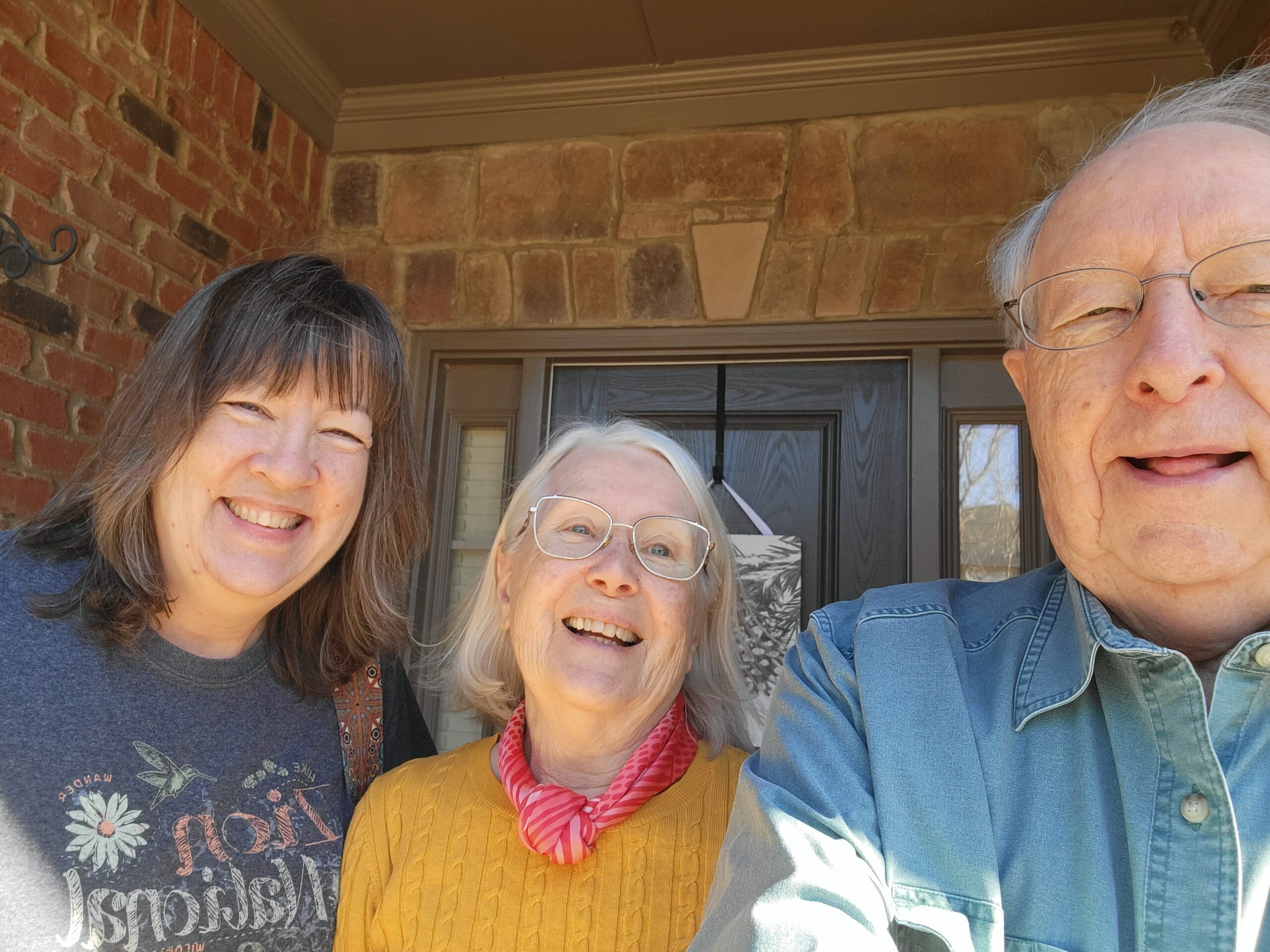Tenacious in Suffering, United in Joy

“Tenacious in Suffering, United in Joy” – February 2nd, 2025 (Philippians week 3)
Philippians 1:27-2:4 (NRSV) – “27 Only, live your life in a manner worthy of the gospel of Christ, so that, whether I come and see you or am absent and hear about you, I will know that you are standing firm in one spirit, striving side by side with one mind for the faith of the gospel, 28 and are in no way intimidated by your opponents. For them this is evidence of their destruction, but of your salvation. And this is God’s doing. 29 For he has graciously granted you the privilege not only of believing in Christ, but of suffering for him as well—30 since you are having the same struggle that you saw I had and now hear that I still have. 1 If then there is any encouragement in Christ, any consolation from love, any sharing in the Spirit, any compassion and sympathy, 2 make my joy complete: be of the same mind, having the same love, being in full accord and of one mind. 3 Do nothing from selfish ambition or conceit, but in humility regard others as better than yourselves. 4 Let each of you look not to your own interests, but to the interests of others.”
Today’s passage opens with the phrase “Only, live your life …” That sounds pretty familiar to us today. The Cambridge English dictionary tells us that “to live your life” means to spend your life doing what you want, usually because something is no longer stopping you from doing so. “To live your life” makes us think about being individualistic, action-oriented, and open, with freedom of choice. The world tells us to live our life by pursuing pleasure, comfort, and rest; money, sex, and power. We are going to need to disentangle these familiar and pervasive ideas from what Paul meant in Philippians 1:27 when he says to “live your life … in a manner worthy of the gospel of Christ.”
In the original Greek language, the key word in this phrase is politeuesthe, which means “to live the life of a citizen.” The first part of that word comes from the Greek word polis, meaning a citadel, city, or community. And now I’m going to break my own rule about not mentioning politics in church, because several of our English words are derived from polis, including “policy”, “metropolis”, “police”, and, you guessed it, “politics.”
So, when Paul tells us to “live our lives in a manner worthy of the gospel of Christ,” he is reminding us of our duties in living the lives of citizens of the kingdom of God. And as Paul does repeatedly throughout Philippians, he points us to imitate Jesus Christ.
Before we look at the specifics of what Paul went on to say, let’s have a little history and geography lesson as we explore a little about where the original recipients of this letter lived. The city of Philippi was situated in a privileged position geographically about halfway along a 700-mile long-distance highway built by the Romans between 146 and 120 BC. The Via Egnatia was the first public road built by the Romans outside of Italy. It started at the coastline of the Adriatic Sea in Durrës (the second largest city in Albania), connected along the northern coastline of the Aegean Sea at Thessalonica (now Thessaloniki, the second largest city in Greece), passed through Philippi, and ran through the region of Thrace all the way to the city of Byzantium (modern day Istanbul).
The Apostle Paul understood the significance of the Philippians’ location. Those who lived in Philippi understood very well what it meant to be citizens of a Roman colony, with both privileges and responsibilities. Paul makes his appeal to the recipients of this letter on this basis.
Roman citizens living in colonies had the same responsibilities as citizens living in Rome: they paid taxes, performed state duties, registered for the census, and the men did military service. They also enjoyed the same privileges as all Roman citizens: they could vote, elect and be elected, own property, participate in priesthood, have a legal trial, marry, and leave an inheritance for their children, and sue and be sued.
Paul deftly springboards from the Philippians’ understanding of earthly citizenship to point us to what it means to be citizens of the kingdom of God. He reminds that although we may be citizens of earthly kingdoms, our higher allegiance is to Christ Jesus and his kingdom, and he calls us to live faithfully in two specific ways.
Tenacious in Suffering
The first way in which we are to live our lives in a manner worthy of the gospel of Christ is to be tenacious in suffering.
Cuban-American New Testament professor and Bible translator Moisés Silva encapsulates Paul’s appeal: “You know the pride and responsibility attached to living in a Roman colony: remember that you have a higher allegiance calling you to faithful conduct. This citizenship requires a tenacious spirit in the face of suffering …” We will revisit this quote later.
For now, let’s read Philippians 1:27-30 again, this time paying close attention to Paul’s mentions of being tenacious in suffering – “Only, live your life in a manner worthy of the gospel of Christ, so that, whether I come and see you or am absent and hear about you, I will know that you are standing firm in one spirit, striving side by side with one mind for the faith of the gospel, 28 and are in no way intimidated by your opponents. For them this is evidence of their destruction, but of your salvation. And this is God’s doing. 29 For he has graciously granted you the privilege not only of believing in Christ, but of suffering for him as well—30 since you are having the same struggle that you saw I had and now hear that I still have.”
One of the things Paul is doing here is challenging our theology: our suffering is not merely inevitable; it is actually evidence of God’s gracious dealings with us. Theologians have spilled a lot of ink explaining this better than I ever could. The bottom line is that to be a citizen of the kingdom of God means that we’re going to experience suffering. It’s not at all clear to me which is more agonizing: my own suffering or walking together through the suffering of someone whom I dearly love. In any case, when we hear God tell us in Philippians that we are to be tenacious in suffering, we might be tempted to assume that the burden of endurance is squarely on our shoulders: I need to remain resolute, I must not give up or give in, I need to read the Bible more and pray more and trust God and just believe. While these things are all well and good, they are not the whole story.
We might remember playing tug of war and the importance of holding on to the rope with all the grit and determination we can muster. We might imagine a fictitious hero whose tenacity we could imitate, like Atticus Finch or Luke Skywalker or Wonder Woman. We might ponder how heroes of the faith like Joan of Arc or Martin Luther or Nelson Mandela might have stood firm in our situation. When we think of Ancient Rome, we might even see ourselves as gladiators in an arena, planting our feet resolutely as we face vicious opposition.
I think we have a tendency in our culture that is marked by self-reliance and individualism to read and interpret the New Testament as though it is written to us personally. Let’s try out this theory on 1 Corinthians 3:17, “For God’s temple is holy, and you are that temple.” It’s easy for us to think that “you are that temple” is talking about us personally. In particular, we tend to think this is talking about how we treat our personal body. A personal trainer might encourage her clients to treat their body as a temple by exercising, eating healthy, wearing clothes that fit properly, and visiting a spa. A TikTok page, “Your Body Is A Temple and I Decorated It,” is dedicated to sharing creative ideas for tattoos to transform one’s body into a personalized work of art. Well, the “you” in 1 Corinthians 3:17 is plural – you, the body of Christ, we are together God’s temple! It is so important to adjust our cultural lenses from “me” to “we” to be able to properly grasp what is being said in the New Testament.
Back to Philippians, when Paul tells us to “live your life,” the word “your” is not the singular “your” but the plural “your” – “y’all!” So when Paul tells us “live your life in a manner worthy of the gospel of Christ,” when he says that “I will know that you are standing firm in one spirit, striving side by side with one mind for the faith of the gospel, and are in no way intimidated by your opponents,” Paul is really saying “live y’all’s life,” “y’all are standing firm … striving side by side,” and “in no way intimidated by y’all’s opponents.” Paul is making a very deliberate and direct reference here to something that was very familiar to first century followers of Jesus. He’s describing the way that Roman soldiers lined up in very tight ranks and locked their shields together. Doing this enabled them to remain steady in a way that far surpassed the strength or stability of an individual.
We might also be tempted to latch onto some common, yet very unhealthy, responses to suffering. Here are four of the ones I’ve noticed – you might have heard some of these before:
The first unhealthy response to suffering is, “It isn’t that bad.” Just because someone else’s suffering is worse does not mean that our own situation or someone else’s is not really suffering. Some of us are prone to minimize our own suffering. Some of us are tempted to minimize the suffering of others. Let us remember that Jesus is “the way, the truth, and the life.” Truth and life are inextricably linked. If we choose to deny the reality of our situation or someone else’s, we are denying a measure of truth, which results in also denying a measure of life to everyone involved. In contrast, as we choose to live in reality, to live in that which is true, where we can name and describe suffering as it actually is, as uncomfortable as we are with that, then we and others will better be able to enter into and experience a not-just-surviving but thriving kind of life. Philippians 4:8 encourages us, “Beloved, whatever is true … think about these things.”
The second unhealthy response to suffering is, “This must just be my cross to bear.” We might erroneously think that we are doomed like that guy from Greek mythology, Sisyphus, who was known for the futile and repetitive punishment he received in the underworld. His eternal task was to roll a boulder up a hill, only to watch it roll back down before he could reach the top. Brothers and sisters, we are not dead and doomed; we are alive and beloved! And as God’s beloved, the Lord continually renews and transforms us with God’s glorious presence and generous freedom, by the power of the Holy Spirit! 2 Corinthians 3:17-18 – “Now the Lord is the Spirit, and where the Spirit of the Lord is, there is freedom. And all of us, with unveiled faces, seeing the glory of the Lord as though reflected in a mirror, are being transformed into the same image from one degree of glory to another; for this comes from the Lord, the Spirit.”
The third unhealthy response to suffering is, “I don’t want to bother anyone else by adding to their burdens.” That might sound noble and caring, but that’s not how the body of Christ works. Romans 12:5 (NIV) puts it plainly, “in Christ we, though many, form one body, and each member belongs to all the others.” This “belonging” is more than just a good idea. It means that even though we do each carry individual burdens, we share the carrying of one another’s heavy loads, because we belong to one another. We get to both “rejoice with those who rejoice, weep with those who weep” (Romans 12:15). That’s how God designed the church to work.
The fourth and final unhealthy response to suffering that we’re considering today is, “This too will pass.” Well, maybe it will, maybe it won’t! How can we possibly know that about any situation, whether our own or someone else’s? To say that to ourselves or to someone else is to claim to know something that no human can possibly know. There is no guarantee that any kind of suffering will let up or that there will be a period of respite. We can’t rely on the suffering to take a break. What we do know is that in our suffering, we are not alone. God is with us. And we need to be there for one another, too. 1 Thessalonians 5:11 (The Message) – “So speak encouraging words to one another. Build up hope so you’ll all be together in this, no one left out, no one left behind. I know you’re already doing this; just keep on doing it.”
United in Joy
The second way in which we are to live our lives in a manner worthy of the gospel of Christ is to be united in joy.
When we live in unity as followers of Christ, we are participating in the oneness of the triune God. Fifth century bishop, Cyril of Alexandria, summarizes Jesus’ famous unity prayer, his prayer that we would all be one (John 17), by saying that Jesus “wishes [us] to be bound together tightly with an unbreakable bond of love … he wishes [us] to enjoy a unity that is inseparable and indestructible, which may not be enticed away into a dissimilarity of wills by anything at all that exists in the world or any pursuit of pleasure, but rather reserves the power of love in the unity of devotion and holiness.” One of my favorite descriptors of what our triune God is like comes from the late Tim Keller, a pastor, theologian, and Christian apologist. In his book The Reason for God, he wrote, “Each of the divine persons centers upon the others. None demands that the others revolve around him. Each voluntarily circles the other two, pouring love, delight, and adoration into them. Each person of the Trinity loves, adores, defers to, and rejoices in the others. That creates a dynamic, pulsating dance of joy and love. The early leaders of the Greek church had a word for this – perichoresis. Notice our word ‘choreography’ within it. It means literally to ‘dance or flow around’.”
When we are not living in unity in the body of Christ, we are actually prevented from experiencing full joy. How can we participate in the Trinity’s dance of joy and love if we’re not united in the body of Christ? There are many potential barriers to unity, and we don’t have time to cover all of them today. I’ve sensed the Lord directing me to highlight two significant traps and barriers t unity that we are all in danger of falling into, because they are so prevalent:
The first trap and barrier to unity is groupthink. The term groupthink was inspired by George Orwell’s 1984 doublethink. Groupthink describes a group’s tendency to make poor decisions when they are too concerned with reaching a consensus. I feel compelled to warn each one of us – we need to be very careful to not agree with everything said or claimed by any individual or group! Agreeing on every point is called uniformity. If someone says that they agree with another person or group 100% of the time, no matter who they are, then at least one of them is not free to think and decide for themselves. Uniformity is a hallmark of cults and control freaks! Paul and I have been married for 39 years. We agree on the most important things, thank God! But we do not agree on and do not need to agree on everything in order to be in unity. Unity is about moving in the same direction. Nothing in Scripture supports any kind of blanket approval of any person or group. In fact, Scripture is chock full of warnings to be careful who you align yourself with! In every situation involving humans, we need to practice discernment. God does not give all of the wisdom or all of the revelation to any one person or group. Unity necessitates humble and deep listening together, to hear God’s voice and to discern God’s direction. Healthy relationships necessarily involve a healthy contending together. The familiar “iron sharpens iron” saying from Proverbs 27:17 is rendered this way in The Message translation: “You use steel to sharpen steel, and one friend sharpens another.” Avoid groupthink like the plague that it is!
The second trap and barrier to unity is fear and worry. Fear and worry say, “Danger is everywhere; we are not going to have enough; doom and gloom; disaster is imminent.” God knows that we are fearful and worried. Pretty much every time God or an angel shows up in Scripture, their first words are, “Do not fear!” There’s no end of things to be afraid of or to worry about. In a long passage from Luke 12 that is so very comforting, Jesus assures our trembling selves, “Therefore I tell you, do not worry about your life, what you will eat, or about your body, what you will wear. For life is more than food, and the body more than clothing. Consider the ravens: they neither sow nor reap, they have neither storehouse nor barn, and yet God feeds them. Of how much more value are you than the birds! And can any of you by worrying add a single hour to your span of life? If then you are not able to do so small a thing as that, why do you worry about the rest? Consider the lilies, how they grow: they neither toil nor spin; yet I tell you, even Solomon in all his glory was not clothed like one of these. But if God so clothes the grass of the field, which is alive today and tomorrow is thrown into the oven, how much more will he clothe you—you of little faith! And do not keep striving for what you are to eat and what you are to drink, and do not keep worrying. For it is the nations of the world that strive after all these things, and your Father knows that you need them. Instead, strive for his kingdom, and these things will be given to you as well. Do not be afraid, little flock, for it is your Father’s good pleasure to give you the kingdom.” Don’t be afraid, and don’t worry! God’s got you!
One of Paul’s main reasons for writing Philippians is that the suffering they’d experienced had been so heavy. They were disheartened and discouraged. Paul reminds them over and over to rejoice, to be united in joy! But how do we live in unity? In Philiippians 2:3 Paul tells us to, “in humility regard others as better than yourselves.” The key to unity lies in humility, or, as 4th century Archbishop John Chrysostom suggests, humble-mindedness. As we humble our minds, God transforms our self-centeredness into selflessness, our envy into empathy, our conceit into compassion, and our looking out for ourselves to looking out for others. In short, God transforms our “me” into “we!”
As we draw to a close here, let’s finish out that quote I shared earlier from Moisés Silva: “This citizenship requires a tenacious spirit in the face of suffering … possible only through the strength of Christian unity.” Philippians is the epistle of suffering matched by joy. If you only remember one thing from today’s sermon, let it be this: we cultivate being tenacious in suffering by being united in joy!
Live your life, y’all, as citizens of the kingdom of God! We are going to experience suffering, but we cannot be tenacious in suffering, all by ourselves. Let us stand firm in one spirit and strive side by side with one mind for the faith of the gospel. Let us not become intimidated by any of our opponents. Rather, let us live in reality, enjoying the freedom of the Holy Spirit. Let us share heavy loads, weeping and rejoicing together. Let us encourage one another, building up hope. In humility, may we cultivate Christian unity and face life together. In the encouragement and strength that God provides through one another, may we live our lives in a manner worthy of the gospel of Christ: tenacious in suffering, united in joy! Let’s go!




